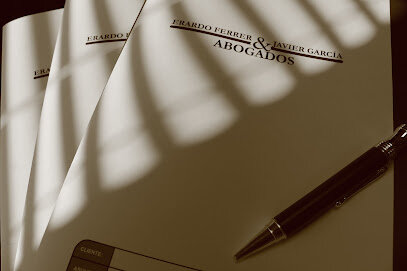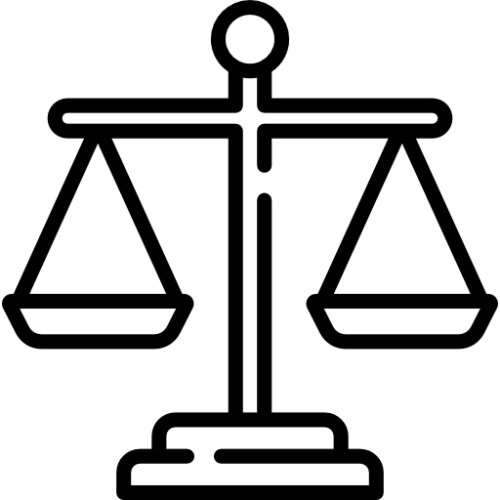Best Juvenile Law Lawyers in Arrecife
Share your needs with us, get contacted by law firms.
Free. Takes 2 min.
List of the best lawyers in Arrecife, Spain
About Juvenile Law in Arrecife, Spain
Juvenile Law in Arrecife, which is the capital of Lanzarote in the Canary Islands, functions within the broader legal system of Spain. It specifically addresses legal matters involving minors, typically defined as individuals under the age of 18. Spanish Juvenile Law is governed mainly by the Organic Law 5/2000, which regulates criminal responsibility for minors, as well as the Civil Code and regulations on child protection. The law aims to provide protection, education, and rehabilitation rather than focusing solely on punishment when minors are involved in legal matters.
Why You May Need a Lawyer
Legal situations involving minors can be complex and emotionally charged. There are several common scenarios in which you may require the assistance of a juvenile law lawyer in Arrecife:
- If a minor is accused of committing a crime and faces possible charges in Juvenile Court
- When children are at risk due to abuse, neglect, or family conflict, and legal intervention is necessary for their protection
- In cases involving custody, guardianship, or adoption of minors
- If a minor is involved in school disciplinary actions with legal consequences
- To navigate procedures with social services or child welfare organizations
- When parents are facing issues related to the legal rights and obligations of their children
- During divorce or separation proceedings where the welfare of children is a concern
Seeking legal advice helps ensure that the rights and best interests of the minor are protected throughout any proceedings.
Local Laws Overview
In Arrecife, Juvenile Law is influenced by national Spanish legislation as well as autonomous community regulations specific to the Canary Islands. Important aspects to consider include:
- Criminal responsibility for minors in Spain generally starts at age 14. Children under this age cannot be held criminally responsible but may be subject to protective measures.
- Juvenile courts (Juzgados de Menores) handle cases involving minors accused of crimes.
- Educational and rehabilitative measures take precedence over punitive sanctions when minors are involved in legal violations.
- Social services, in coordination with the courts, play a key role in both protective and correctional proceedings for minors.
- The Canary Islands have their own social care networks working alongside national agencies to protect minors at risk.
- Parents and guardians have specific legal obligations regarding supervision, care, and the welfare of minors.
Understanding these laws and how they apply in local contexts is crucial for effectively addressing juvenile legal matters in Arrecife.
Frequently Asked Questions
What age is a person considered a minor under Spanish law?
A person is considered a minor until they turn 18 years old in Spain. For criminal responsibility matters, the Juvenile Criminal Law applies from age 14 to 17.
What happens if a minor is accused of a crime in Arrecife?
If a minor is over 14 and accused of a crime, their case will be handled in Juvenile Court. The process focuses on education and social reintegration, with measures that may include counseling, community service, or supervised freedom.
Can minors be sent to prison?
Minors under 18 cannot be sent to adult prisons. If detention is required, it will be in specialized juvenile centers and only for serious offenses, with the goal of rehabilitation rather than punishment.
Who represents the minor in juvenile proceedings?
Minors are represented by a lawyer during proceedings. The court will assign a public defender if the family cannot afford private legal representation.
Are parents legally responsible for their children's actions?
Parents or guardians can be held civilly liable for damages caused by their children, especially if it results from a lack of proper supervision or care.
How are cases of child abuse or neglect handled?
Such cases are reported to social services or law enforcement. Immediate protective measures may be taken, followed by court proceedings to determine the best interests of the child, which could include removal from the home.
Can minors provide testimony in court?
Yes, minors can provide testimony, but courts generally take special precautions to ensure that the process does not cause additional harm, such as using video statements or special interview procedures.
Is it possible to seal or erase a minor’s criminal record?
Yes, juvenile criminal records are generally sealed or expunged once the minor reaches a certain age and after fulfilling legal requirements, to help them reintegrate into society without stigma.
What rights do minors have during legal proceedings?
Minors have the right to be heard, the right to legal representation, and the right to a fair process in accordance with their developmental needs and vulnerability.
What if I disagree with a decision made by juvenile authorities or the court?
Appeal procedures exist, and a lawyer can advise on the best way to challenge decisions or file complaints if you believe a legal error or injustice has occurred.
Additional Resources
If you are seeking further information or support regarding Juvenile Law in Arrecife, the following resources can be very helpful:
- The Juvenile Court (Juzgado de Menores) of Arrecife: Handles criminal cases involving minors.
- Local offices of the Fiscalía de Menores (Juvenile Prosecutor's Office): Supervises the correct application of juvenile law and protects the rights of minors.
- Cabildo de Lanzarote Department of Social Services: Provides child protection services and support to families.
- Institute of Legal Medicine of Las Palmas: Offers expert assessments in child welfare and abuse cases.
- Canary Islands Government Department of Social Rights: Oversees regional policies for child and family welfare.
- Local bar association (Ilustre Colegio de Abogados de Lanzarote): Can help you find specialist juvenile law lawyers.
Next Steps
If you need legal assistance with a juvenile law matter in Arrecife, you should:
- Gather all relevant documents and information about your case.
- Contact a specialist juvenile law lawyer for a consultation to evaluate your situation and outline potential courses of action.
- Visit or contact the Juvenile Court or local social services office if urgent intervention for the welfare of a minor is needed.
- If necessary, request a public defender through the local bar association if you cannot afford private legal representation.
- Stay informed about your legal rights and follow the advice of your lawyer or the authorities throughout the process.
Juvenile legal matters can be sensitive and complicated, but professional legal guidance ensures that the rights and best interests of the minor are at the forefront of any proceedings.
Lawzana helps you find the best lawyers and law firms in Arrecife through a curated and pre-screened list of qualified legal professionals. Our platform offers rankings and detailed profiles of attorneys and law firms, allowing you to compare based on practice areas, including Juvenile Law, experience, and client feedback.
Each profile includes a description of the firm's areas of practice, client reviews, team members and partners, year of establishment, spoken languages, office locations, contact information, social media presence, and any published articles or resources. Most firms on our platform speak English and are experienced in both local and international legal matters.
Get a quote from top-rated law firms in Arrecife, Spain — quickly, securely, and without unnecessary hassle.
Disclaimer:
The information provided on this page is for general informational purposes only and does not constitute legal advice. While we strive to ensure the accuracy and relevance of the content, legal information may change over time, and interpretations of the law can vary. You should always consult with a qualified legal professional for advice specific to your situation.
We disclaim all liability for actions taken or not taken based on the content of this page. If you believe any information is incorrect or outdated, please contact us, and we will review and update it where appropriate.











